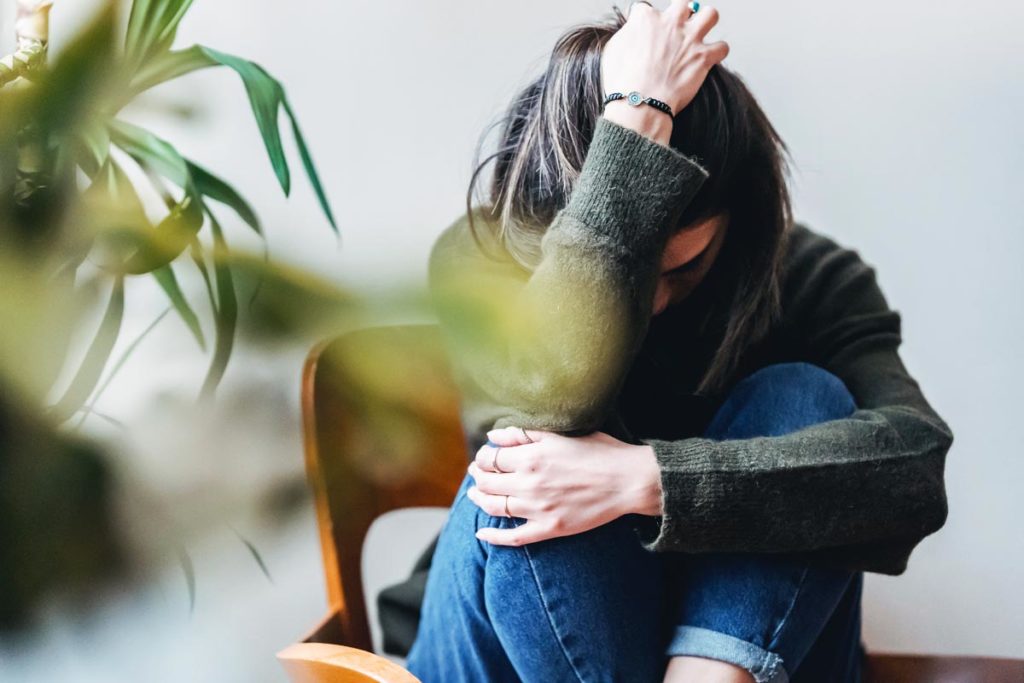If you’re struggling with anxiety, you’re far from alone. An estimated 40 million U.S. adults, or 19% of the total population, have an anxiety disorder. While anxiety disorders are extremely common, less than 42% of the population gets help. And, for social anxiety disorders, many people can take over 10 years of noticing symptoms before they look for help. That lack of support and treatment means that many of us turn to drugs and alcohol to help us calm anxiety, reduce panic, and to enable us to function. This “self-medication” creates risks, leading to addiction, health problems, and worsening symptoms.
Overcoming any kind of reliance on drugs and alcohol should normally mean treatment. In most cases, anxiety also significantly benefits from treatment. However, if you’re struggling with both, you’ll need a dual diagnosis and dual track treatment to ensure your symptoms don’t get in the way of each other.
Get Help
If you’re struggling with anxiety, you can get help. Behavioral therapies like CBT, EMDR, and DBT help you to identify underlying problems behind anxiety, to figure out patterns that make mental health problems worse, and to build new and healthy patterns.
If you’re also struggling with alcohol or drug use disorder, you can also get treatment to help with that. For example, rehab can help you to improve your coping mechanisms, to undo behavioral patterns around drinking and drug use, and to build healthy patterns and habits that help you stay clean and sober.
In each case, it’s important that your treatment center is able to treat both at once. If you treat anxiety while struggling with drugs or alcohol, the substance use disorder will likely get in the way of treatment. If you get clean or sober without helping with the anxiety disorder, you’re very likely to relapse. Your treatment should include both problems, with focus on the most pressing issues first.
Get your question answered now.

Find Coping Mechanisms
Managing anxiety often means identifying triggers and then finding coping mechanisms for those triggers. Those triggers can be things you feel anxious about. For example, crowds, traffic, arguments, cleaning, etc. On the other hand, they might also be negative cycles, such as downward spirals or triggers that build things up in your head.
You will often work with your therapist to figure out those triggers in therapy. But, you can continue to do so out of therapy. In addition, you can find coping mechanisms and mitigation strategies that will help you to minimize anxiety in each situation. For example, some coping mechanisms might be to stop and remind yourself of all of the reasons a bad thought isn’t true, it might be to distract yourself, to share your anxiety with someone who can talk you through it, or to logically go through all of the reasons why the thing you’re feeling anxious about will be okay and focus on those instead of letting your thoughts turn to a negative spiral. None of those will be 100% successful, people have anxiety because they can’t control those negative thoughts, so you’re never going to be 100% successful.
However, if you do have a coping strategy in place that is not “drink” or “take a pill” you’ll be able to lean on other things. That can reverse negative cycles, like thinking yourself into anxiety because you can’t drink and therefore having to drink to control the anxiety. If your coping mechanism is something like a 10-minute breathing ritual or meditation, you’ll be much less able to work yourself into panic because you can’t do it.
Practice Stress Management
Good stress management involves managing stress as it happens and working to reduce stress in your life. You can achieve this with a combination of therapy, good stress management practices, and daily time to relax and destress. That can mean going to stress therapy. You might also take something like Mindfulness-Based Stress Reduction Therapy (MBTR).
However, you can also try reducing how you experience stress. Taking time to build good habits, exercise, spend time every day cleaning your home, and setting expectations at a level where you can manage them. For example, if something is causing you anxiety, sitting down and deciding why and what steps you can take to reduce that anxiety can be helpful. For example, if you are anxious about doing the dishes, you could take steps to reduce the amount of dishes you actually use. If you’re stressed about being in traffic, you could work to reduce commute time or find a job that allows you to work from home. Avoidance definitely isn’t always the solution, but if you can’t reduce panic about something by thinking it through, reducing the amount the thing causes anxiety is your next best strategy.
Get Group Support
Going to 12-Step groups or even church can give you group support, help you to move past anxiety, and give you the feeling of belonging. Simply having a place to share, to be accepted, and to create accountability for yourself can do a great deal for your progress. That’s true whether you’re primarily getting help with drinking or substance use or with anxiety.
Having a group to talk to, to share experiences with, and to set goals with is motivating, holds you accountable, and will help you to feel more in touch with others. Depending on your community, you may even have Christian-focused support groups specifically for anxiety.
Seek Out Ongoing Treatment
Anxiety is often an ongoing thing and most people will struggle with it for the rest of their lives. This means that it’s important for you to continue to invest in the habits and lifestyle that reduce your anxiety. It’s also important that you maintain networks and are able to seek out ongoing help, to ask for help if you notice yourself getting worse again, and to be able to talk to someone if you need it.
Here, that ongoing treatment may come from your initial treatment center. Aftercare with ongoing treatment, planned checkups, and the ability to call a counselor to talk is an important part of long-term mental healthcare.
Eventually, if you’re struggling to avoid using drugs or alcohol to cope with symptoms of anxiety, it’s important that you ask for help. Your mental health provider can help you with both in a dual-diagnosis track, can help you to overcome the need for using coping mechanisms like alcohol, and can give you the tools to get anxiety back under control without substances.
If you or you loved one need help with mental health treatment, drug rehab, or alcohol rehab Compassion Recovery Center is here to help. Contact us to ask about our mental health programs and how we can support your specific requirements as you move into treatment.










